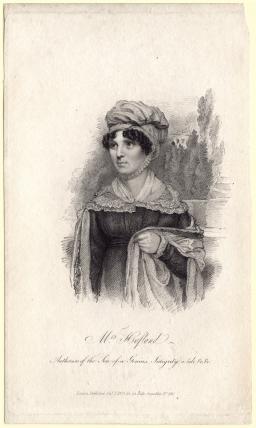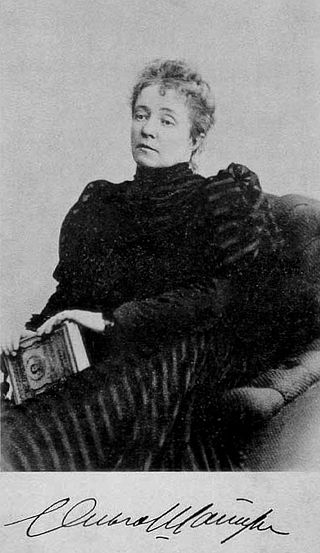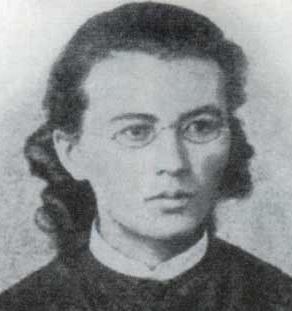
Anna Andreyevna Gorenko, better known by the pen name Anna Akhmatova, was a Russian poet, one of the most significant of the 20th century. She reappeared as a voice of Russian poetry during World War II. She was nominated for the Nobel Prize in Literature in 1965 and 1966.

Anna Seward was an English Romantic poet, often called the Swan of Lichfield. She benefited from her father's progressive views on female education.

Vasily Andreyevich Zhukovsky was the foremost Russian poet of the 1810s and a leading figure in Russian literature in the first half of the 19th century. He held a high position at the Romanov court as tutor to the Grand Duchess Alexandra Feodorovna and later to her son, the future Tsar-Liberator Alexander II.

Ivan Sergeyevich Aksakov was a Russian littérateur and notable Slavophile.

Barbara Hofland was an English writer of some 66 didactic, moral stories for children, and of schoolbooks and poetry. She was asked by John Soane to write a description of his still extant museum in London's Lincoln's Inn Fields.

Valentina Iovovna Dmitryeva was a Russian writer, teacher, medical doctor and revolutionary.
Domna Anisimovna Anisimova, known as Blind Domna, was a blind and illiterate but accomplished 19th-century Russian poet. Her last name is also sometimes given as Onisimova.

Olga Andreyevna Shapir, born Kisliakova, was a Russian writer, activist, and outspoken feminist.
Tatyana Sergeevna Yesenina was a Soviet writer, the daughter of Sergei Yesenin and his second wife Zinaida Raikh.
Anna Alexandrovna Barkova, 16 July 1901 – 29 April 1976, was a Soviet Russian poet, journalist, playwright, essayist, memoirist, and writer of fiction. She was imprisoned for more than 20 years in the Gulag.

Countess Anna Artemevna Buturlina, née Vorontsova was a Russian artist, noblewoman, and artist's model.

Anna Nikolayevna Engelhardt was a Russian women's activist, writer, translator, and the compiler of the Complete German-Russian Dictionary. Having been educated at one of the few schools offering education to women, she began working in a book store and then helped found the first women's publishing cooperative in Russia. Concerned with women's issues and their ability to support themselves, after her husband was banished from Saint Petersburg, Engelhardt became involved in the women's movement and helped establish the Bestuzhev Courses for women's higher education, as well as co-founding the Women's Institute of Medicine.

Sofia Polyakova was a Soviet classical philologist, Byzantine specialist and scholar of ancient Greek and Byzantine authors. She published the first collection of the works of the Russian poet Sophia Parnok and was the first scholar to unravel the relationship of Parnok and Marina Tsvetaeva. Her work on Parnok, revived scholarly interest in the poet.

Dmitry Vasilyevich Dashkov was a Russian statesman and writer. For the last ten years of his life, he headed the Ministry of Justice as minister. He was a founder of the Arzamas literary society.
Anna Vasilyevna Antonenko-Lukonina is a Soviet and Russian actress, People's Artist of Russia (2007).

Anna Alekseyevna "Annette" Olenina was a Russian noblewoman and writer, who is the author of unpublished diaries and memoirs about Alexander Pushkin.












